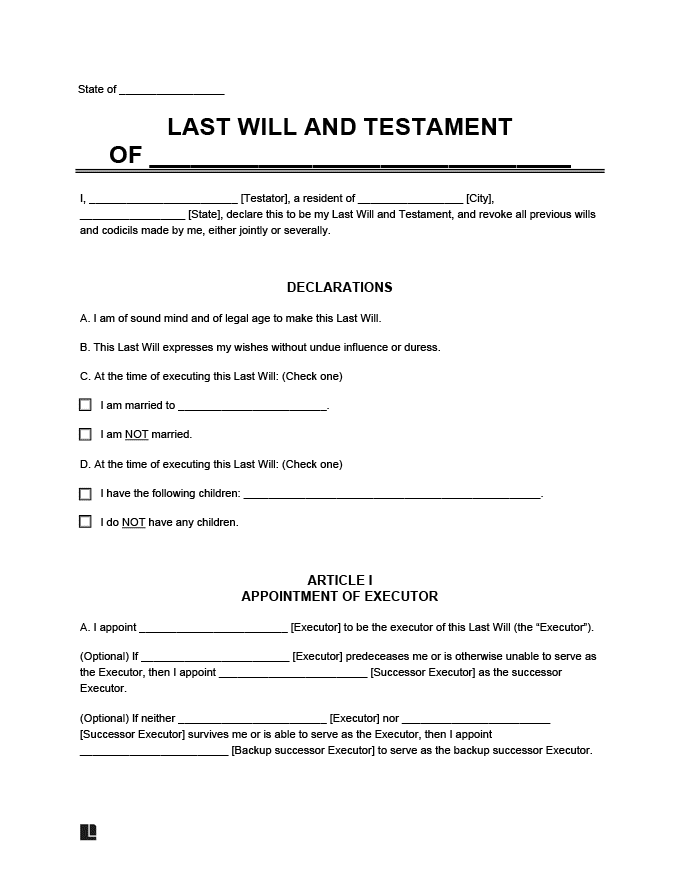How to Make a Will for Free: A Step-by-Step Guide for Parents
Hello there, wonderful parents! If you’ve clicked on this guide, chances are you’re looking to secure your family’s future without breaking the bank. Well, you’re in luck! Crafting a will might seem like a daunting and expensive task, but it doesn’t have to be. We’re here to walk you through how to make a will for free, so you can rest easy knowing your loved ones are taken care of. ?
Understanding the Importance of a Will for Parents
Before we dive into the nitty-gritty of making a will, let’s understand why it’s so important, especially for you as a parent. A will is not just about assets; it’s also about ensuring that your children are cared for by the people you trust the most. It’s about making your wishes known and avoiding any legal hiccups that could add stress to your family during an already difficult time.
Step 1: Decide How You Want to Create Your Will
First things first, decide how you want to create your will. There are several options for drafting a will for free:
- Do-It-Yourself Will Kits: These can be found online and typically provide templates that you can fill out yourself.
- Online Will Writing Services: Some online platforms offer free will writing services that guide you through the process.
- Pro Bono Legal Help: In certain cases, especially if you have a low income, you might be eligible for free legal assistance in drafting your will.
Each option has its pros and cons, so be sure to choose the one that’s right for your situation. If you have a simple estate and clear wishes, DIY might work wonders for you! If your situation is a bit more complicated, seeking professional help, even if pro bono, might be the best route. ?
Step 2: Gather All Necessary Information
Before you start writing your will, you must gather all the necessary information. This includes:
- Full names and addresses of all people you intend to name in the will (beneficiaries, guardians, executors)
- A comprehensive list of your assets, including any property, investments, and valuable personal items
- Details of any debts or mortgages
- Considerations for the care of your children, including potential guardians
- Any particular wishes for your funeral or memorials
This information will be the foundation of your will, so having everything at the ready will make the process smoother.
Step 3: Choose Your Beneficiaries
Now, let’s talk beneficiaries. Who do you want to inherit your assets? This can include your children, spouse, other family members, friends, and even charities. It’s also wise to name alternate beneficiaries, just in case your primary choices are unable to inherit.
Step 4: Select a Guardian for Your Children
As a parent, one of the most crucial aspects of your will is naming a guardian for your children. This should be someone you trust implicitly to raise your children in the event that you’re no longer able to. Don’t forget to have a conversation with the person or persons you’re considering to ensure they’re willing and prepared to take on this responsibility.
It’s a tough but necessary decision, as the future well-being and upbringing of your little ones are at stake. Think about the values, parenting style, and emotional capacity of potential guardians before making your choice.
Step 5: Appoint an Executor
The executor of your will is responsible for making sure your final wishes are carried out. When choosing an executor, look for someone who is responsible, organized, and trustworthy. Often, people choose a family member, but an unbiased friend or a professional such as an attorney can also be a great choice.
Remember, it’s entirely possible to make a legal, binding will without spending any money. The beauty of this approach is that you can take your time to consider all aspects of your estate and guardianship for your children, without the pressure of looming legal fees.
Continue reading for more detailed insights on making your free will a robust document that will stand the test of time…

5 Things Parents Should Know in Preparing to Make a Will for Free
1. The Legal Requirements of a Will
Every parent should understand the legal requirements needed to make a will valid. These often include being of legal age, of sound mind, and having the will signed by witnesses. Concrete requirements may vary by jurisdiction, so checking your state or country’s rules is crucial. Free online services or legal clinics can provide guidance on these laws to ensure your will is legally binding.
2. Guardianship Choices Shouldn’t be Made Lightly
Appointing a guardian for your children is perhaps the most emotional decision you’ll make. It’s essential to consider not just the love someone has for your children but also their ability to provide stability, make sound parenting decisions, and respect your parenting philosophy. Also, consider the impact of this role on their existing family dynamics.
3. The Specificity of Your Wishes
Your will can provide specific instructions on how your children should be raised, educated, and the values you hope they’ll follow. Don’t shy away from detailing the types of experiences or education you wish for them, as this will serve as a guide for guardians and trustees. Additionally, specifying how and when your assets should be distributed can prevent misinterpretation or disputes.
4. Regular Updates Are Essential
Lives change, as do assets and relationships. A will made when your first child is born may not reflect your circumstances after the birth of a second child or a move abroad. It’s essential to review and potentially update your will after major life events or at least every few years to keep it current and relevant.
5. The Importance of Discussing Your Will With Those Involved
Discuss your will and intentions with your chosen executors, guardians, and beneficiaries. Ensuring that everyone understands and agrees with their roles can prevent confusion and disputes after you’re gone. Honesty and clarity can help maintain harmony and ensure your wishes are fulfilled as you intended.
Pouring through these guidelines, you should now be brimming with confidence and ready to embark on this oh-so-important journey. Remember, drawing up a will might just be the most meaningful document you ever create for your children’s future. With a sprinkle of love, a dollop of thoughtfulness, and a dash of legal savvy, you’re all set to make a will that encapsulates your deepest wishes for your wonderful family. Go forth and secure that future with the brightness and hope it deserves! ??
Next Steps: Legalizing and Storing Your Free Will
Once you’ve created your will, it’s time to legalize and store it safely. Notarization may not be a legal requirement everywhere but it adds an extra layer of authentication. Store your will somewhere secure but accessible, and ensure your executor knows where it is. Safe deposit boxes, fireproof home safes, or with your attorney are all good places to consider.
Longform guides like this can seem a bit overwhelming, but they’re just signposts on your path to peace of mind, knowing your most precious gifts—your children—will be cared for just as you’d wish. Now, let’s turn these steps into action, and make a will that stands as a testament to your enduring love and care. ??
For more detailed assistance and legal advice, consult with a legal professional. Laws vary by location, and an attorney can provide advice tailored to your specific situation.
See more great Things to Do with Kids in New Zealand here. For more information see here
Disclaimer
The articles available via our website provide general information only and we strongly urge readers to exercise caution and conduct their own thorough research and fact-checking. The information presented should not be taken as absolute truth, and, to the maximum extent permitted by law, we will not be held liable for any inaccuracies or errors in the content. It is essential for individuals to independently verify and validate the information before making any decisions or taking any actions based on the articles.




